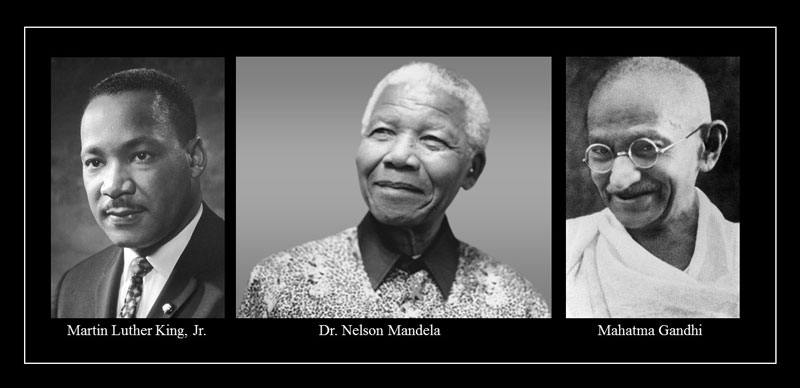We are reader-supported. We may earn from links to products. Read our disclosure for more.
“If you cannot lead, don’t mislead,” is a piece of timely and sincere advice to all those who are in the position of leadership and those who intend to become leaders everywhere in the world – whether at home or in the family, in the office, at places of worship, and in governance.

This story was inspired by disheartening stories of leaders who mislead their followers and cause them some untold hardships, and in some cases, death.
Let’s consider some of those examples, both old and new.
Example #1
When the people of Israel were coming out of captivity from Egypt, God invited their leader, Moses, to a place where He handed over to him, the laws He had made for the people of Israel.
As Moses was leaving in the company of his deputy, Aaron, to go and meet with God, the enjoined the rest of his people to remain calm until his return.
He also advised them to take any matter that might arise, in his absence, to Aaron and Hur, who would hold forth for him and Aaron (Exodus 24: 12-14).
When Moses did not return after forty days and forty nights (Exodus 24:18), the people he left behind became impatient and beseeched Aaron to make alternative gods for them since Moses was nowhere to be found.
Instead of advising and warning his followers of the consequences of their request, Aaron acceded to their request and said to them: “Take off the golden ring that your wives, your sons and your daughters are wearing, and bring them to me.”
The people obeyed his instruction and gave their gold rings to Aaron, who melted and use them to form a Golden Calf for them, in return.
When the people saw the Golden Calf, they were exceedingly happy that they could not hold their joy to themselves (Exodus 32: 1-6).
God, for obvious reasons, was very upset about it and wanted to destroy them, but for the intervention of their leader, Moses, who pleaded on their behalf.
Example #2
Prophet Hananiah was called by God to lead his people of Israel, but instead of that, he went about deceiving his people with false prophecies (Jeremiah 28:11, 15), thereby causing them to sin against God..
Example #3
The managing director of a certain commercial bank told the shareholders of his bank, during an annual general meeting, AGM, that the value of their shares had just doubled from what they used to be.
But during the auditing of the bank’s books of accounts by external and independent auditors, in accordance with the laws of their country, the auditors discovered that the bank had accumulated losses, but hid them from its shareholders.
Consequently, the auditors advised that the bank be wound up by the government.
After studying the recommendations of the auditors, the government saw the need to wound up the bank and wasted no time in doing that, as the continued existence of the bank would cause more losses and harm to both its shareholders and the country at large.

Example #4
A certain man told his wife and his children that his own mother was the reason he was not rich, and as a result of that misinformation, both his children and his wife began to maltreat the man’s mother.
Anytime and anywhere they saw her, they would boo her and call her a wicked witch, who did not wish her son well.
One day, the man took ill and began to confess to his wife and children that his mother was not a witch.
“My wife is not a witch. I made those allegations against her because I wanted to use her for money ritual and the plan failed.”
At the end of his voluntary confession, he appealed to his wife to forgive him for having told them lies that misled them.
Seven days later, the man died in the presence of his wife and children, after slumping and vomiting blood.
Example #5
Two communities were embroiled in lengthy lawsuits over the ownership of a certain piece of land.
The dispute escalated when a leader in one of the communities lied to his people that the disputed land was once the farmland of his own grandfather.
That encouraged the people of his community to intensify their efforts and resolve to recover the said land from the other community, at all costs.
That determination led to clashes upon clashes, which resulted in hundreds of deaths in both communities.
As the number of casualties continued to increase, the government of the country decided to wade into the matter.
During the investigation and the reconciliation processes carried out by the panel that was established by their government, members of the panel discovered that the land, which was the bone of contention, was, at no time, the farmland of the leader who claimed it to be so.
Immediately after that truth was unearthed, the leader who misled his people into the unavoidable war ran away from his community and went into a self-exile, as a result of the shame that resulted from his dirty action.
“A leader,” according to Peter F. Drucker, the management guru, “is lifting a person’s vision to higher sights, the raising of a person’s performance to a higher standard, the building of a personality beyond its normal limitations,” and not the other opposite.
If you cannot lift your followers’ vision to higher sights, raise their performance to a higher standard, and/or build their personalities beyond their normal limitations, please, do not cause them more harm than they have; socially, spiritually, politically, and economically speaking!
Simply put, if you cannot lead, don’t mislead.
If You Cannot Lead, Don’t Mislead. THE END.



